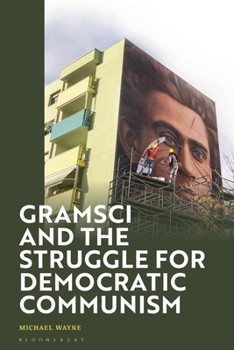Gramsci and the Struggle for Democratic Communism
With its authoritarian distortions, the Marxism of the 20th century sundered the connections between the practice of Communism, and its essentially democratic ethos.
This book reconstructs those vital threads by turning to the work of Italian Marxist Antonio Gramsci. In the wake of the rise of neoliberalism and the new global order that it ushered in, Gramsci and the Struggle for Democratic Communism asks: what form of political rule can facilitate the transition away from capitalism's increasingly apocalyptic end game? To answer this question, Wayne puts Gramsci into dialogue with key thinkers from his own historical period, from Marx, Lenin and Trotsky through to John Dewey and Walter Lippmann. Wayne argues that Gramsci's contribution to Marxism helps clarify the political inheritance that class democracies bequeath a revolutionary transition. Wayne then puts Gramsci into a critical dialogue with contemporary thinkers such as Stuart Hall, Ernesto Laclau and Antonio Negri, analysing such crisis situations as Britain and Venezuela under neoliberalism. In the final chapter he develops the concept of 'elongated dual power' to explore how revolutionary change can be reconciled with democratic principles as the old choice between barbarism or revolutionary change looms once more on the horizon.Format:Hardcover
Language:English
ISBN:1350447099
ISBN13:9781350447097
Release Date:April 2026
Publisher:Bloomsbury Academic
Length:328 Pages
Weight:1.00 lbs.
Dimensions:1.1" x 6.1" x 9.2"
Customer Reviews
0 rating





